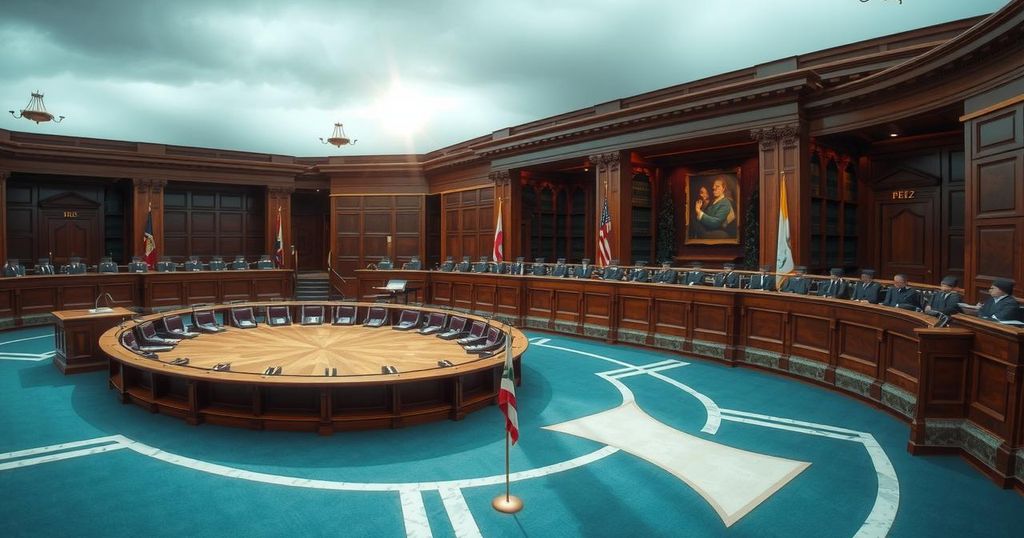A landmark climate case commenced in The Hague aims to establish international responsibilities for mitigating climate change, particularly regarding vulnerable nations like Vanuatu. The court will deliberate on the legal obligations of states concerning greenhouse gas emissions and potential repercussions for inaction. With representation from 99 countries, the case could set a significant precedent for climate accountability globally.
An internationally significant climate case currently underway in The Hague is anticipated to influence governmental responsibilities regarding climate change mitigation. The case features arguments before the United Nations’ International Court of Justice and addresses the obligations of nations to combat the adverse effects of climate change, particularly for vulnerable countries. Representing the Pacific island nation of Vanuatu, Attorney General Arnold Kiel Loughman emphasized the urgency for legal action to safeguard those at risk of displacement due to rising sea levels.
The court will consider two primary inquiries: the responsibilities of states under international law concerning greenhouse gas emissions and the repercussions for governments whose actions or inactions have severely impacted the environment. Notably, this case is the most extensive in the court’s history, involving participation from 99 countries. Vanuatu, along with nations such as Chile and the Philippines, is advocating for accountability from major emitters, including the United States and China.
Vanuatu’s legal pursuit reflects a broader frustration voiced by vulnerable nations, exemplified by Fiji’s ambassador to the United Nations, Luke Daunivalu, who underscored the disproportionate impact of climate change on marginalized populations in these nations. In contrast, representatives from major emitting countries like the United States and Russia have resisted the imposition of binding emission reduction requirements, preferring to rely on agreements such as the Paris Accord, which seeks to limit global warming.
While the anticipated ruling from the court will lack direct enforcement capabilities, it could establish a legal foundation for future actions that compel wealthier nations to provide assistance to countries facing existential threats from climate change. Environmental advocates assert that a favorable opinion from the court could guide international law, ultimately leading to greater accountability in combating climate change.
The ongoing climate court case in The Hague represents a pivotal moment in international efforts to address climate change, with implications for governments worldwide. The Pacific island nations, particularly Vanuatu, have rallied for the International Court of Justice to delineate the legal responsibilities nations hold in mitigating climate-related harm, driven by their precarious situations due to rising sea levels. Given the disproportionate impact climate change has on smaller island nations, the outcome of this case could either solidify existing legal frameworks or catalyze new obligations for major emitters, reshaping the global approach to climate justice and responsibility.
The International Court of Justice’s deliberations on climate obligations present a crucial opportunity to redefine state responsibilities concerning climate change. As small island nations seek justice and assistance against the backdrop of existential threats, the court’s decision could pave the way for enhancing accountability among the world’s major greenhouse gas emitters. The outcome has the potential to influence not only international law but also the viability of climate justice efforts in addressing the systemic inequalities exacerbated by climate change.
Original Source: abcnews.go.com







